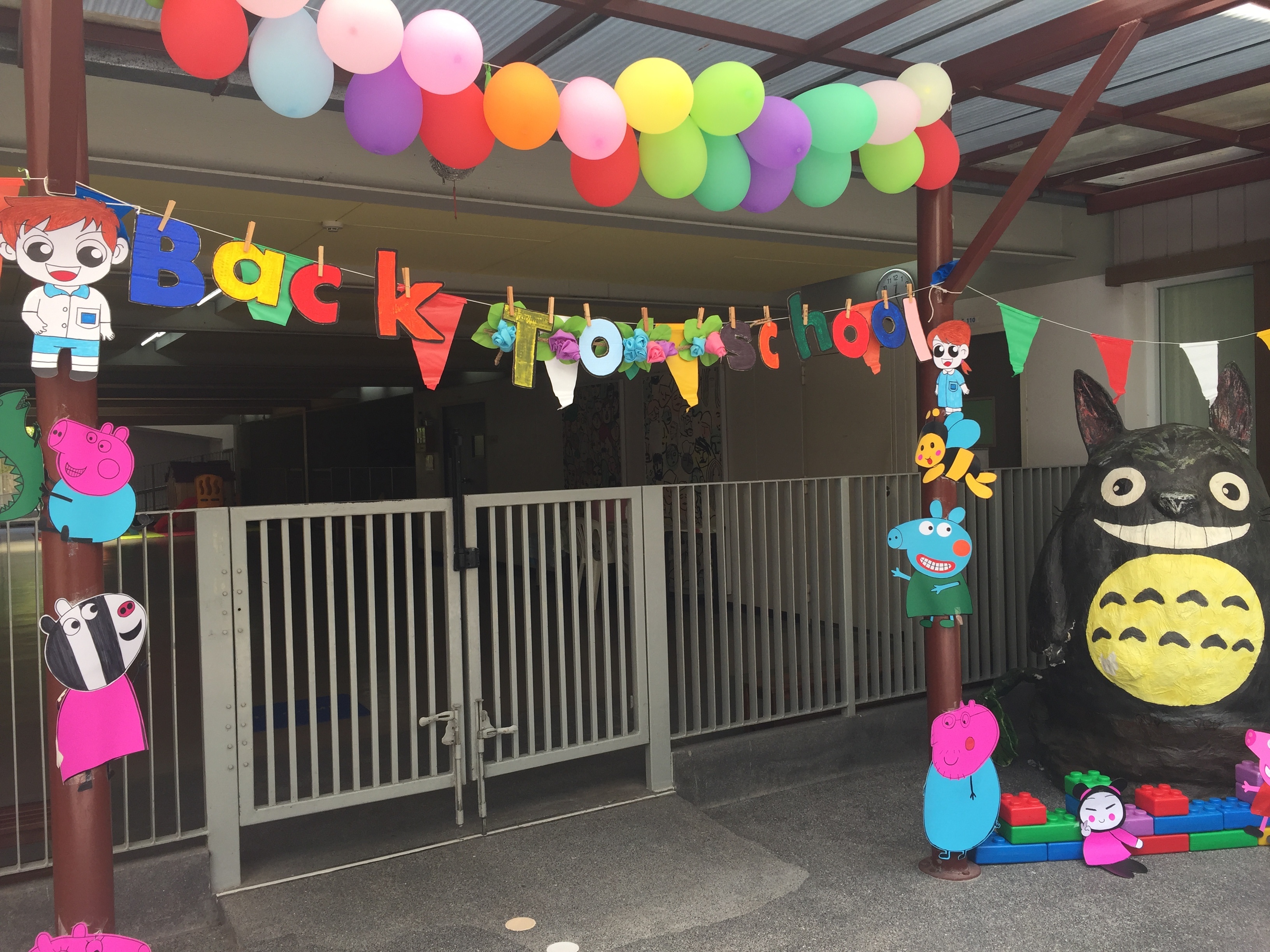Wai Kru Day
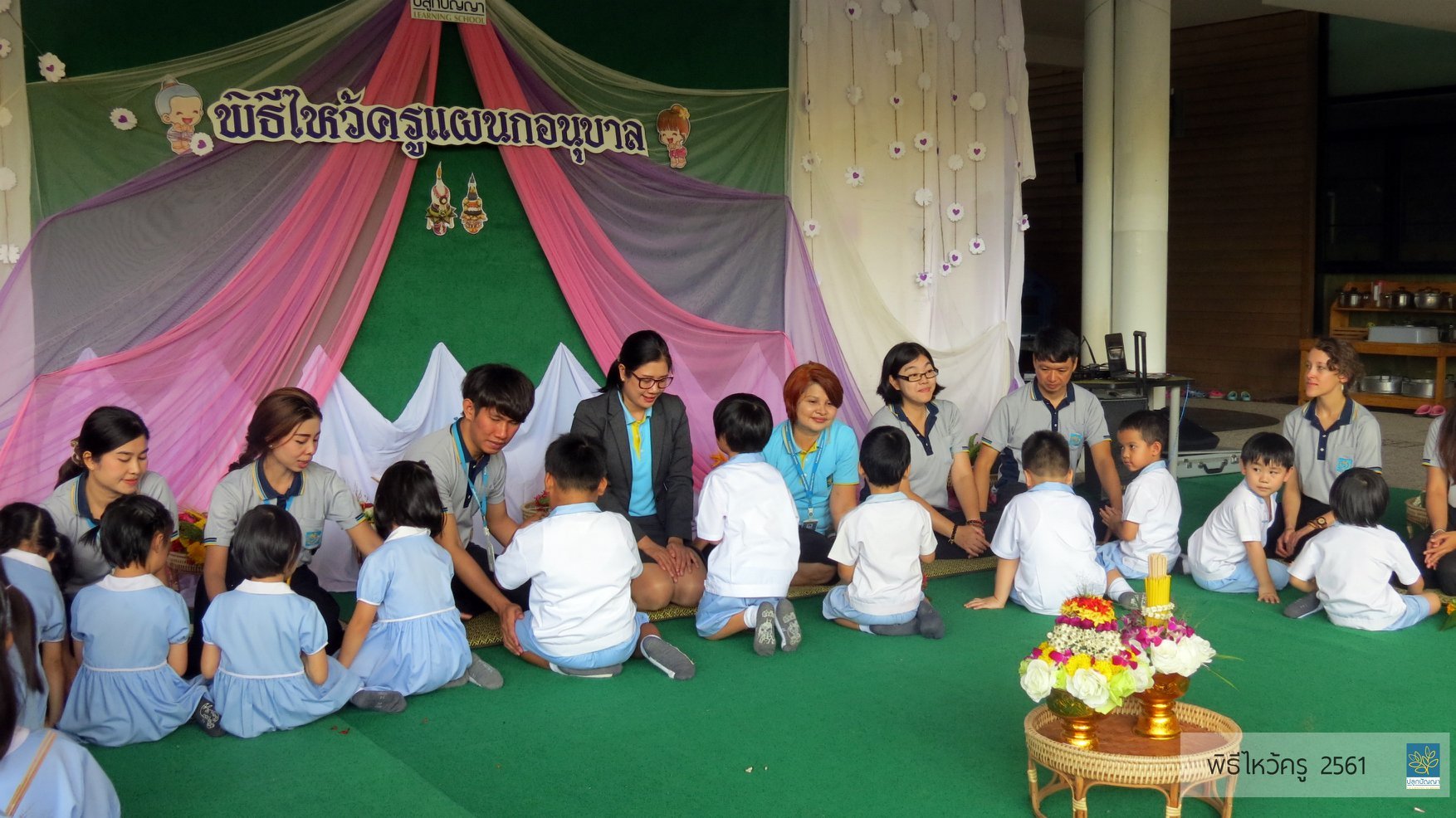
Also known as "Teachers' Appreciation Day" in Thailand, students take this day to honor and pay respect to their teachers. I was fortunate to experience this celebration on Thursday, June 7 with my lovely nursery and kindergarten students.
About Wai Kru Day
In Thai, wai means to bow or greet. It's also considered the customary greeting in Thailand. When you wai, you’re not only greeting someone; you're also showing respect to them. It's most important to wai to colleagues, elders, and monks. To wai, with hands pressed together in prayer, you bring your thumbs to various points of your body—depending on who you’re greeting— and bow.
The wai is also very important in the classroom. Before and after every class, my students wai to me, while greeting me at the beginning of the class and thanking at the end of the class. Wai-ing plays an integral role in the Wai Kru ceremony, of course.
Khru or kru simply means "teacher" in Thai.
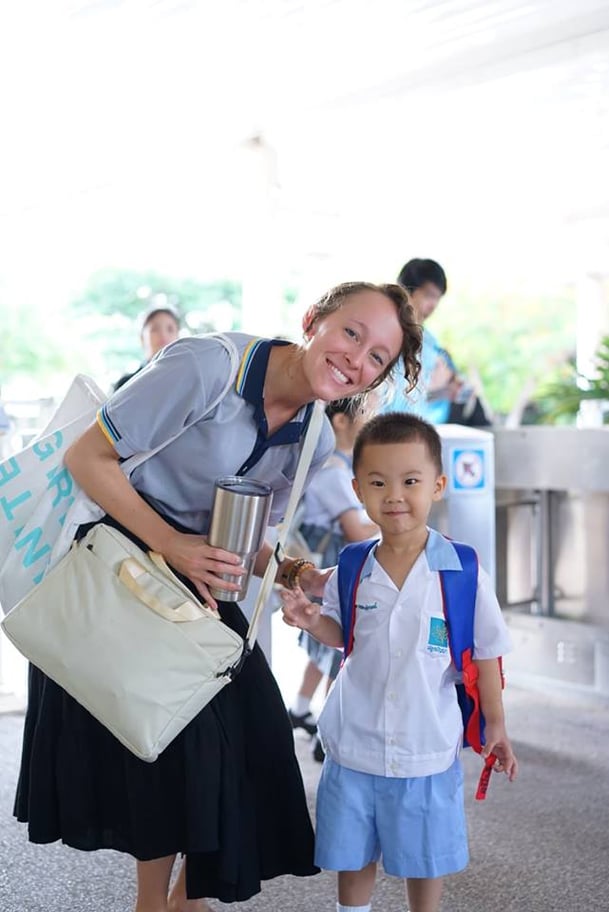
Like many parts of the world, teachers are very respected in Thailand. The Wai Kru ceremony, held at the beginning of every school year across the country, speaks volumes to how valuable teachers are, as it not only gives students a way to express their gratitude, it also gives teachers an opportunity to start their teacher-student relationships off on the right foot.
Wai Kru Ceremony
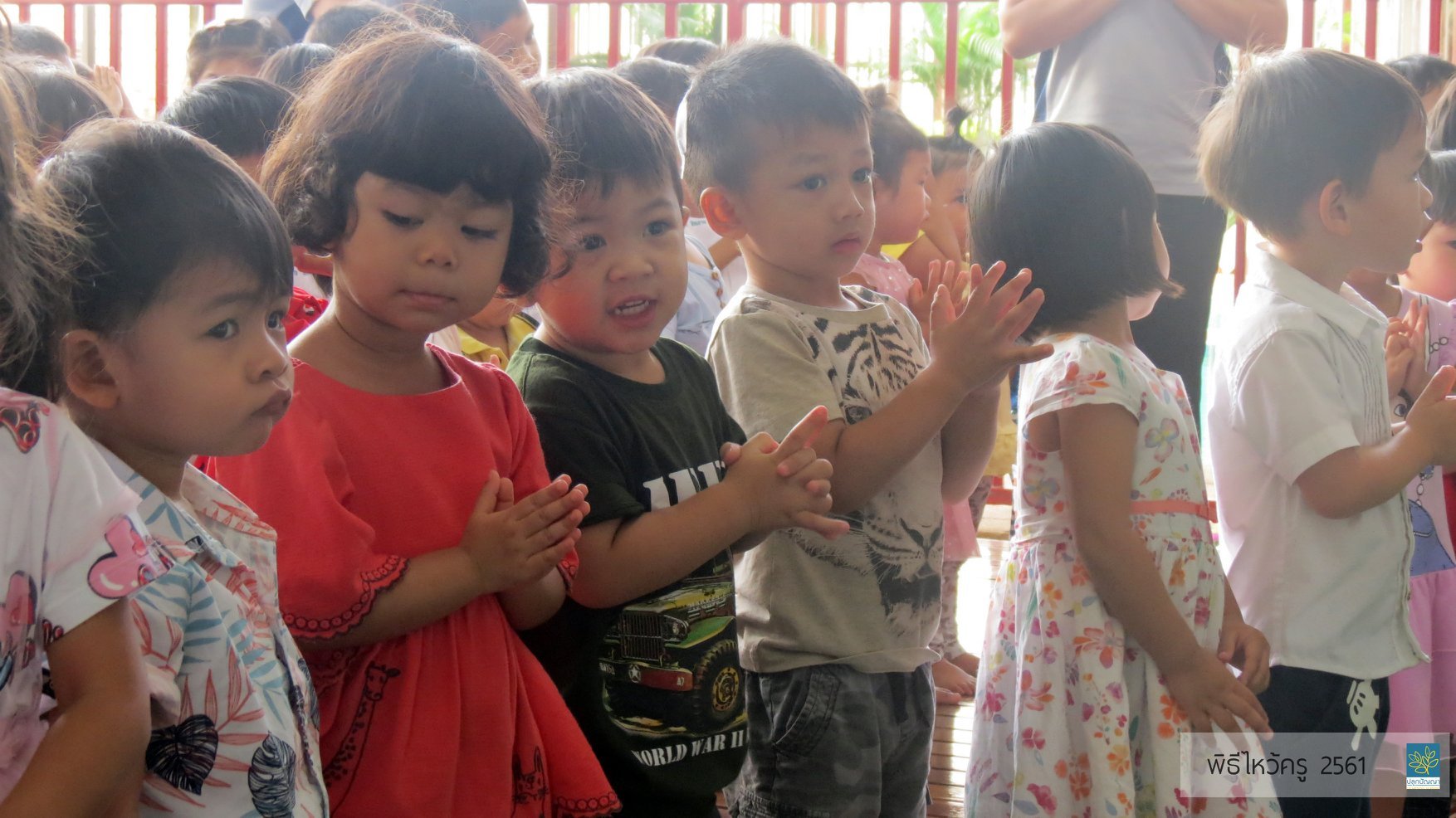
The ceremony at our school started at nine in the morning. Each class, from pre-nursery to K3, gathered in the courtyard in the center of the two classroom buildings. Once all the kiddos were settled, two Thai kindergarten teachers welcomed everyone. They then asked everyone to stand and wai, as they led everyone in a Buddhist prayer, followed by a beautiful Thai song about the importance of teachers.
For the next part of the ceremony, I was invited to sit on stage, along with the head administrators of the kindergarten department and my foreign teacher colleague, Marie. We kneeled on small square mats, as the teachers began gathering the nursery students to begin the ceremony.

Starting with the first nursery class, all the way through K3, each student made their way to the stage, with their beautiful flower arrangements in hand. They then sat on their knees and wiggled their way across the stage until each student was in line with a teacher. The students stay on their knees to be below the teacher's height. In Thai culture, it's simply a way to show respect— the student is never "higher" than the teacher.
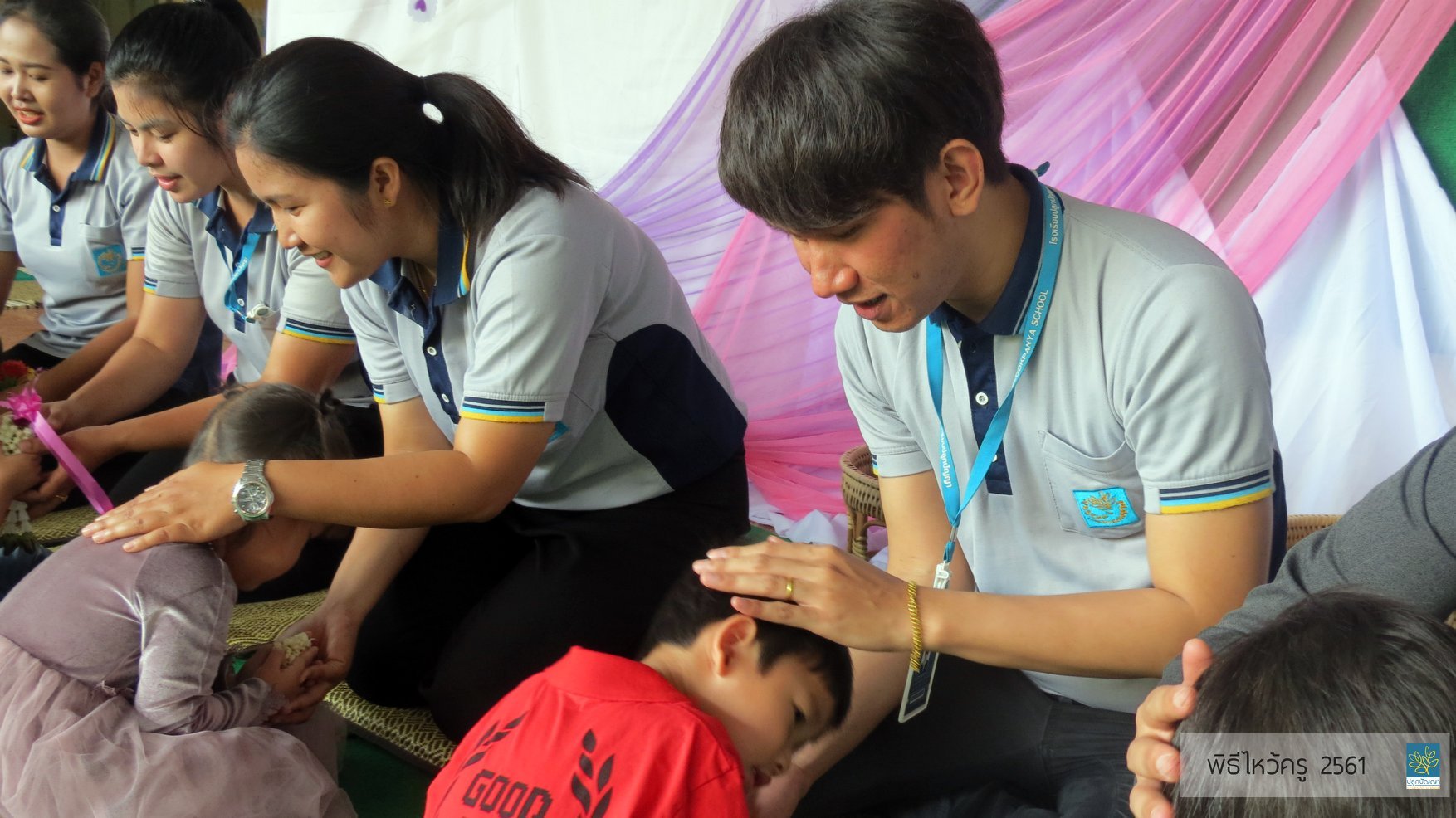
Once all the students in one class were sitting in front of a teacher on stage, they would wai and bow completely to the ground, while the teachers rubbed their heads, or gave them words of encouragement. The head rubbing felt a little odd at first, but I later learned it symbolizes the transfer of knowledge.
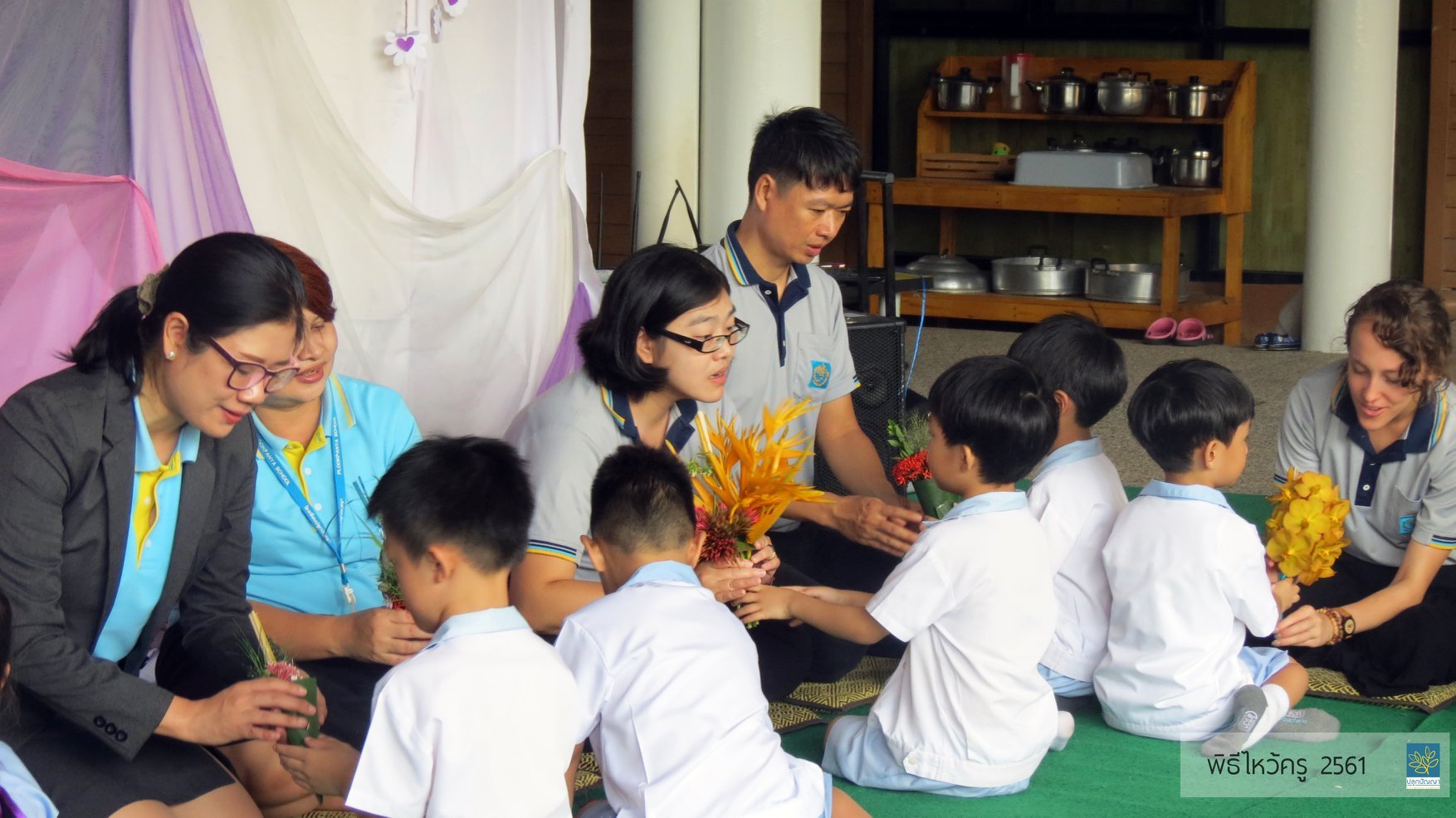
After their first wai, the students would take their flower arrangement and give it to the teacher sitting in front of them. The beauty of the colorful flowers, matched with the joy on the students' and teachers' faces was just wonderful to experience.
I also found out the flowers are very meaningful in the Wai Kru ceremony. Most arrangements will contain the following flowers:
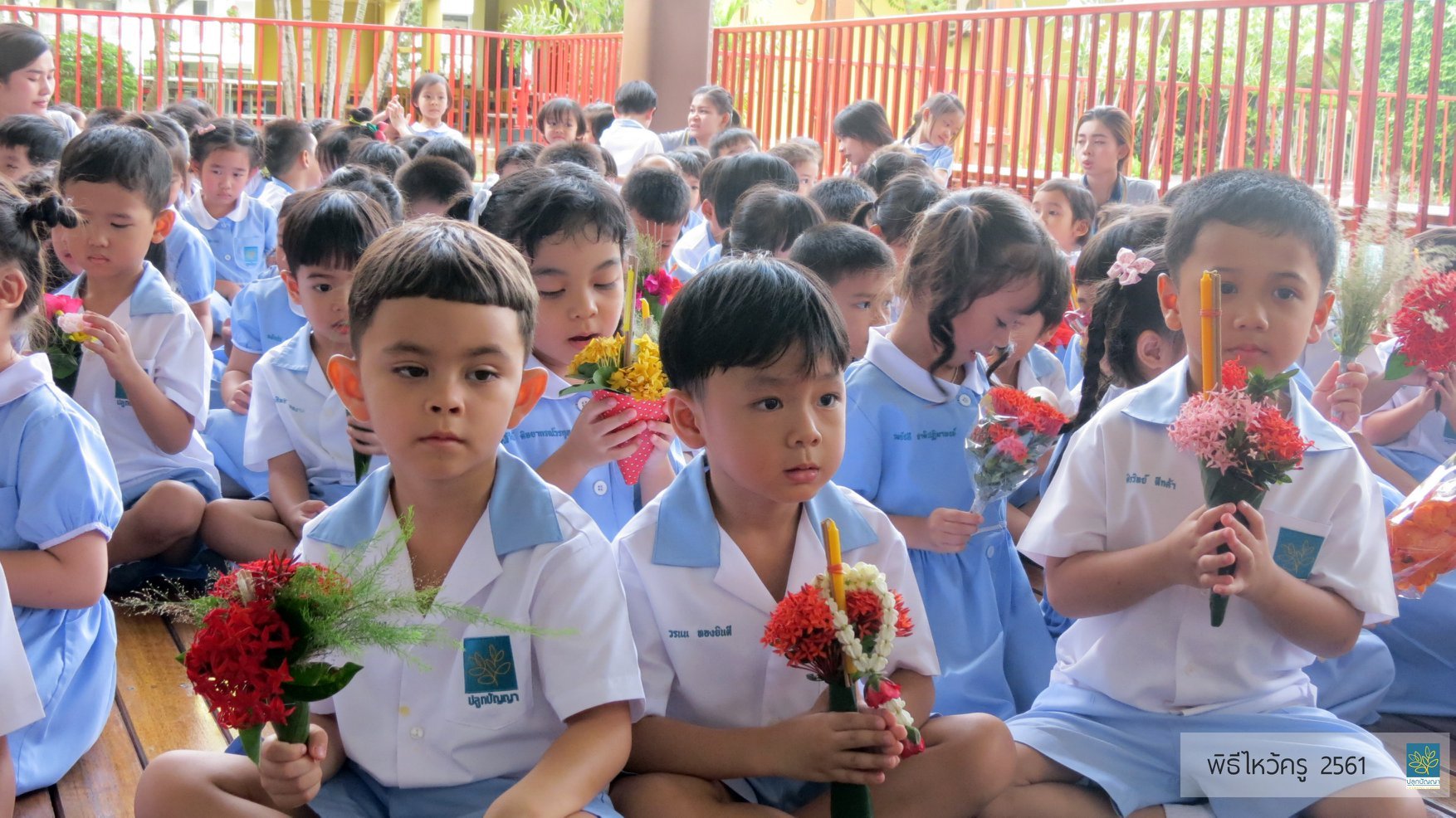
- Ixora flowers: symbolize sharp wit
- Bermuda grass: represents determination and the ability to learn
- Popped rice: brings discipline
- Eggplant flowers: used for respect and humility
Following the flower arrangement exchange, the students would wai one last time and bow to the ground, while the teachers would give them an extra pat on the head for good luck.
The students would then, often hilariously, wiggle back off stage, trying their best to stay on their knees until they reached the edge. The ceremony ended with another Buddhist prayer and Thai song, as well as many photo ops...
Say hello to my adorable K1 students and their homeroom teachers:
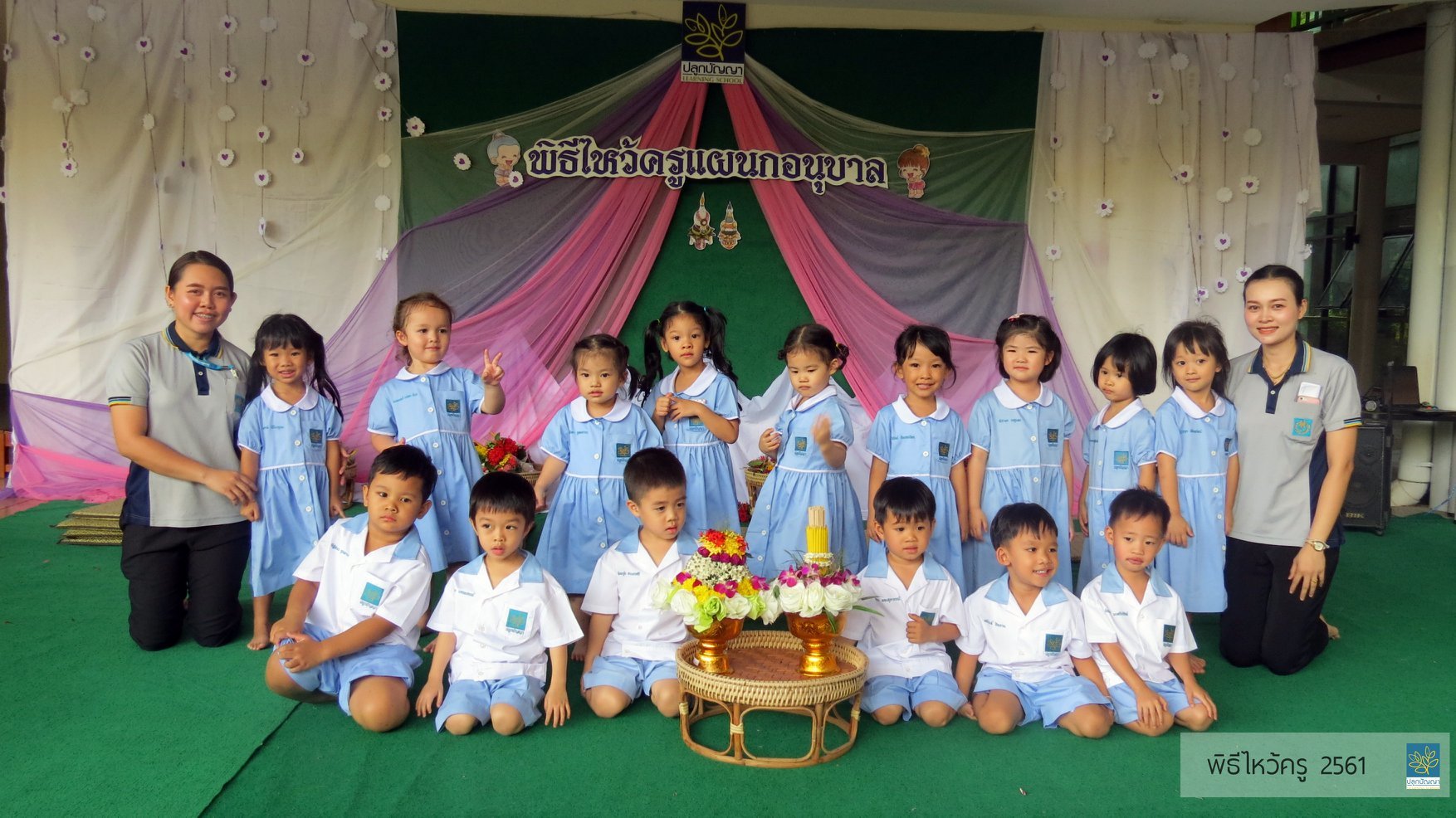
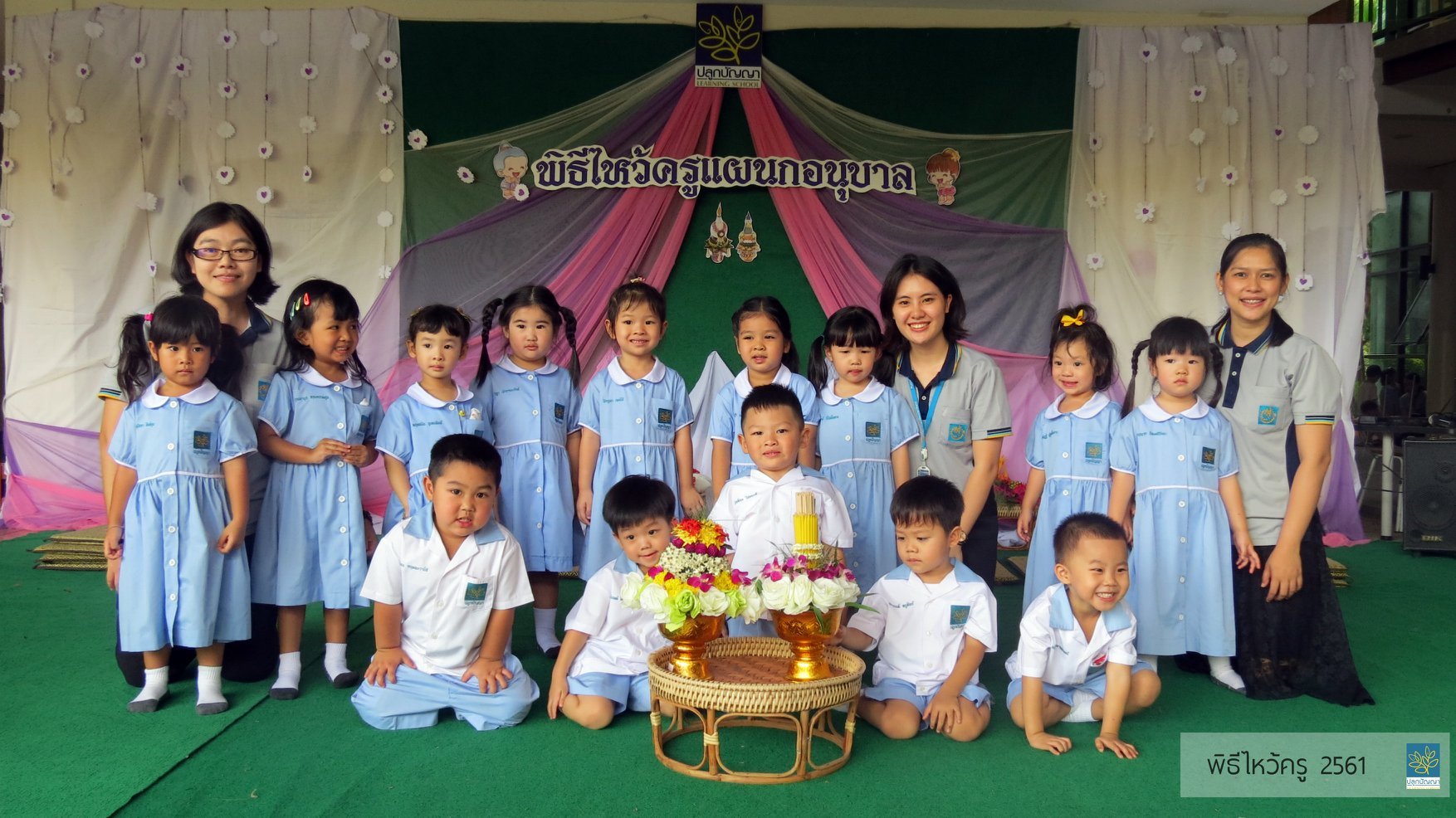
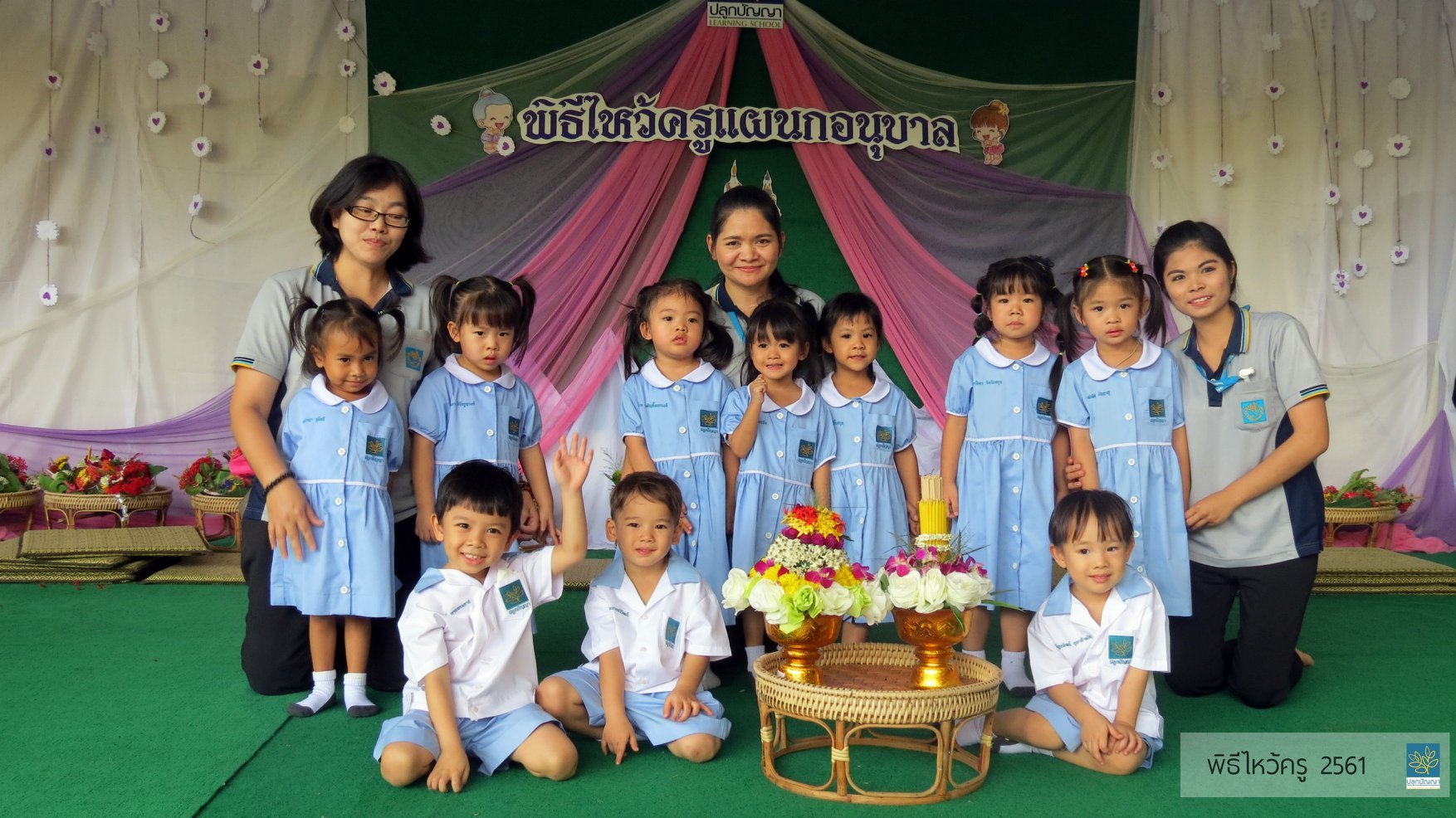
The morning ceremony was over and done with in a flash, but I'm sure the memories will stay with me forever. To me, teaching (and more so, teaching abroad), is one of the most humbling jobs you could have. Some days you want to cry, others you want to scream, many days you wonder why you do what you do— but then there are days like this, when students show how much gratitude they have for you, when you feel like what you're doing is making an impact. Maybe not forever, but just for a moment...

